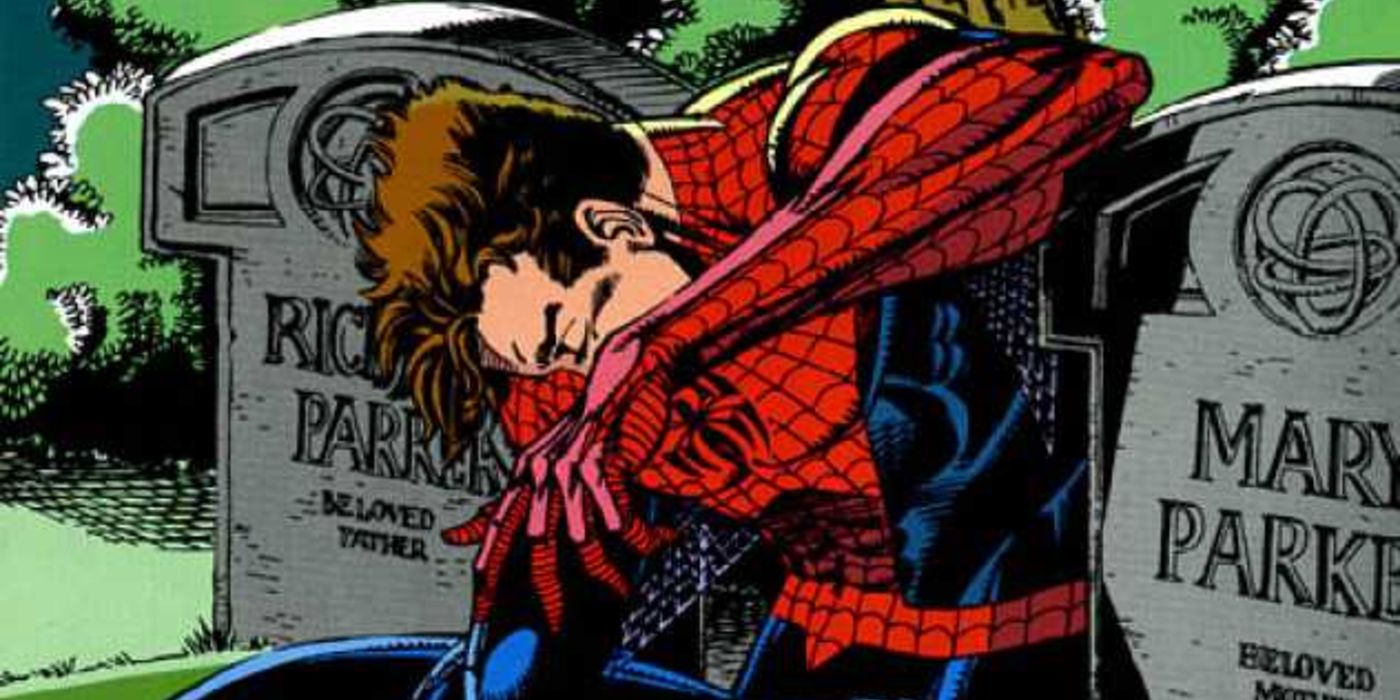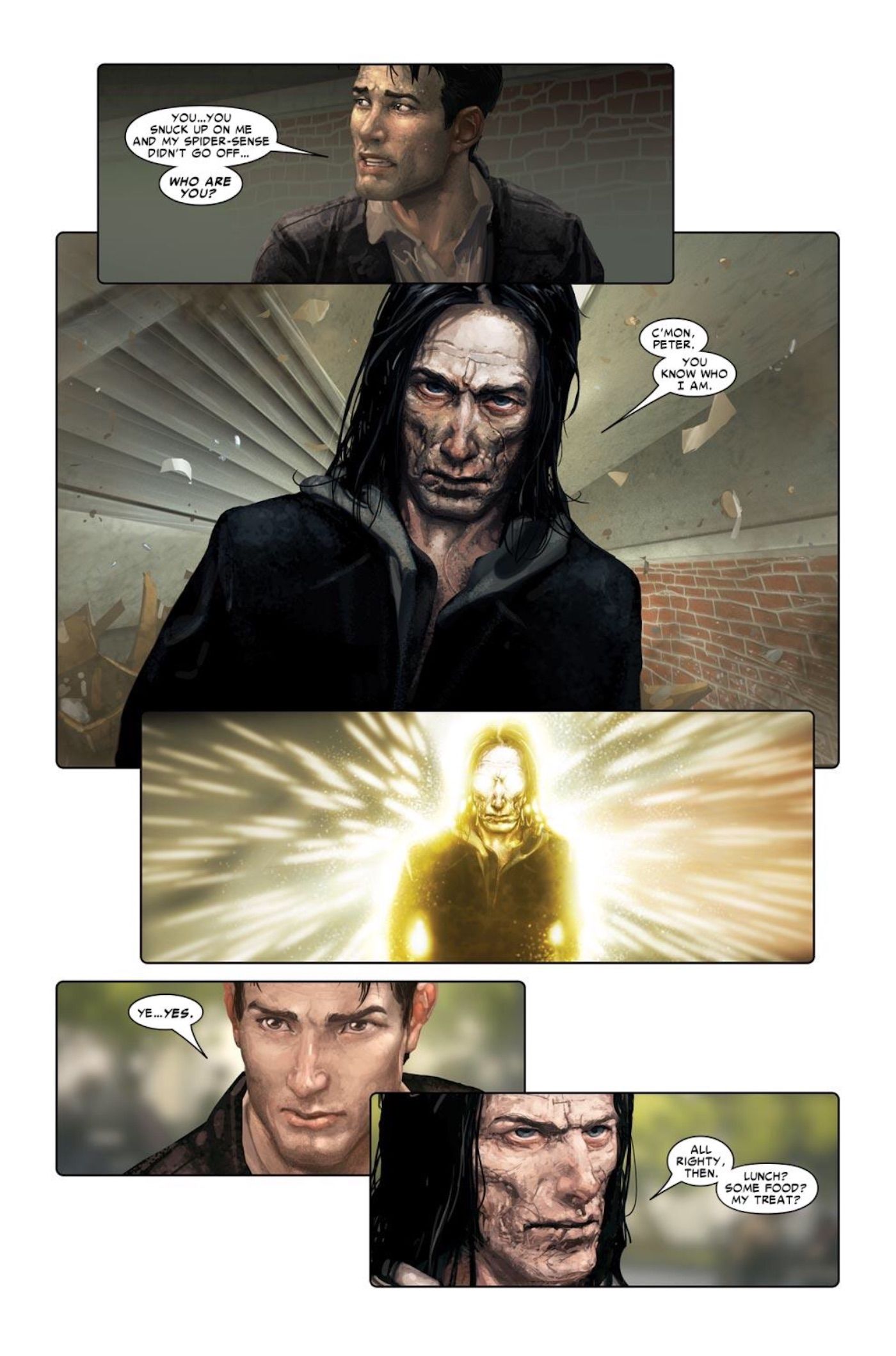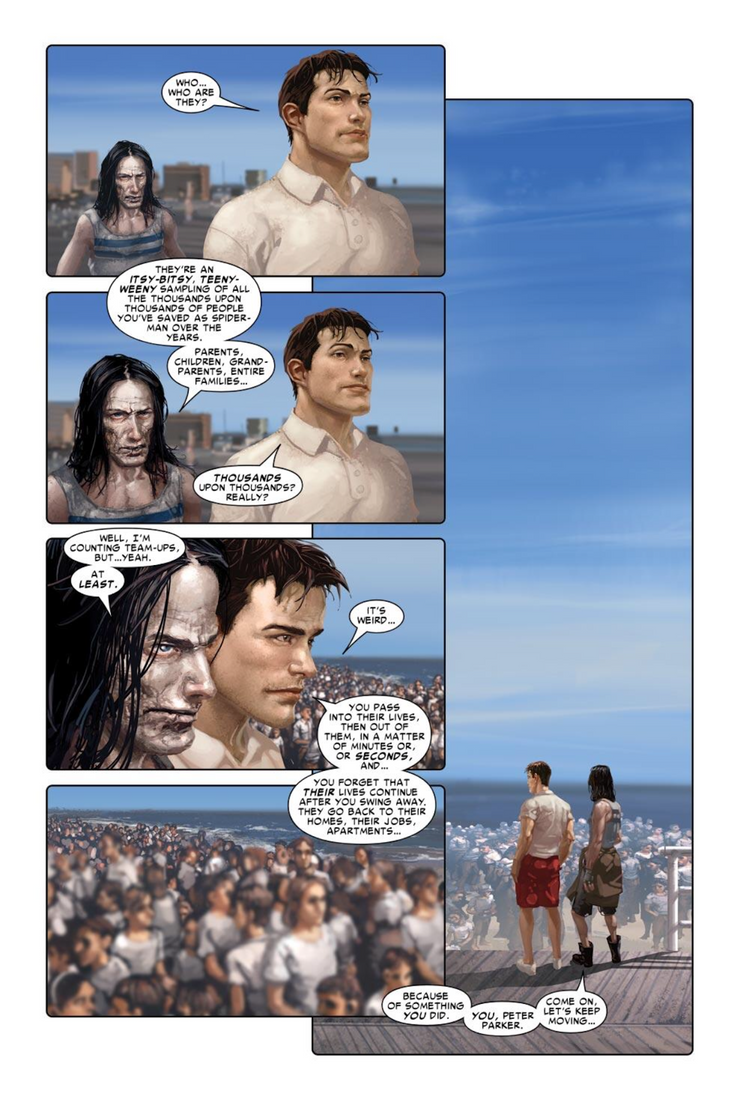SpiderMan Has Forgotten the Lesson He Was Taught by God Himself
Spider-Man Has Forgotten the Lesson He Was Taught by God Himself
Peter Parker still wonders if being Spider-Man is hurting more people than he helps…even though a higher power has told him otherwise.
You Are Reading :[thien_display_title]

Warning: Contains spoilers for Amazing Spider-Man #60!
Peter Parker is questioning his role as Spider-Man—even after God himself told him that his heroics have made a difference. Guilt and doubt have always been Spider-Man’s constant companions. Both are an integral part of the origin story that has rarely changed since Spider-Man’s debut in Amazing Fantasy #15 in 1962. And in Amazing Spider-Man #60, Peter inadvertently reveals that both aspects have got the better of him once again.
After the machinations of the villain Kindred (secretly Harry Osborn) forced Peter to relive his most painful memories and suffer the trauma from them all over again, Peter does what he does best: hold his pain inside. Mary Jane brings Peter to an old abandoned theater and asks him to talk through his experiences on the stage, as a therapeutic exercise. Despite Peter’s protestations (“I get terrible stage fright, believe it or not” he says, a far cry from his extroverted and jocular Spider-Man persona), he goes along with Mary Jane’s plan. Centering himself in the middle of the stage, he closes his eyes, focuses his breathing, and imagines that Kindred is before him.
What begins as a discussion between Peter Parker and the image of Harry-as-Kindred changes into something resembling a confession. Peter muses on the nature of Spider-Man and his actions, but also wonders if, by attempting to save others, he is actually making things worse for his friends and family. “I know that I’m trying to do something good…and I get that I have,” he says to Harry. “Spider-Man has saved lives. But if the people I love keep paying the price for that…is that any less selfish than what started all this off? Is my need to try making something right just making more things go wrong?” Such is the question Peter has continually been asking himself as of late, most notably during writer Nick Spencer’s run on the character. The entire Kindred/Sin-Eater arc has dealt with the idea that Peter’s actions as Spider-Man potentially endanger more people than they save. However, it’s important to note that none other than God himself has dismissed the notion entirely.

In The Sensational Spider-Man Vol. 2 #40’s story “The Book of Peter”, Peter encounters an old homeless man who is heavily implied to be God, known in the Marvel Universe as the One Above All. The One Above All shows Peter a vision of a crowded beach packed with “…a sampling of the thousands upon thousands of people you’ve saved as Spider-Man over the years…because of something you did. You, Peter Parker.” There are no indications that the One Above All is a hallucination or supervillain trickery—he is who he says he is. Yet even with this message, along with the man’s parting words to “Have faith, Peter,” Spider-Man still doubts himself. Years later, it appears he has forgotten the whole encounter, along with the One Above All’s lesson: being Spider-Man makes a difference. But Peter cannot cast away his guilt, which begets doubt, which fuels guilt, and the cycle continues ad infinitum.

What to make of a man who clings to doubt and guilt more than a message from the Almighty? Perhaps Peter believes that shouldering that burden is the responsible thing to do. If that’s the case, then Peter’s definition of responsibility is woefully incomplete. He has effectively blinded himself with the wellbeing of his friends over the literal thousands of others he has saved; he cannot see the forest for the trees. A true hero doesn’t prioritize the people they help. But Peter continues to paralyze himself by living in the past—specifically, his past failures. In the end, this is Spider-Man’s greatest mistake: he equates responsibility with blame instead of duty.
Link Source : https://screenrant.com/spiderman-kindred-confession-guilt-doubt-god-failure-danger/
Movies -The Hunters Guild Asks if Black Clovers Asta Had A Death Note
Supernatural The Animation Why Jensen Ackles Only Voiced Dean For Two Episodes
Teen Wolf 10 Times The Show Broke Our Hearts
The Matrix 4 The Merovingian Is Returning
The Big Bang Theory The 10 Best Star Trek References Ranked
SpiderMan Fan Outcry Encouraged Disney & Sony’s New Deal
Star Wars Every Member Of the Dark Side Ranked By Lightsaber Skill
